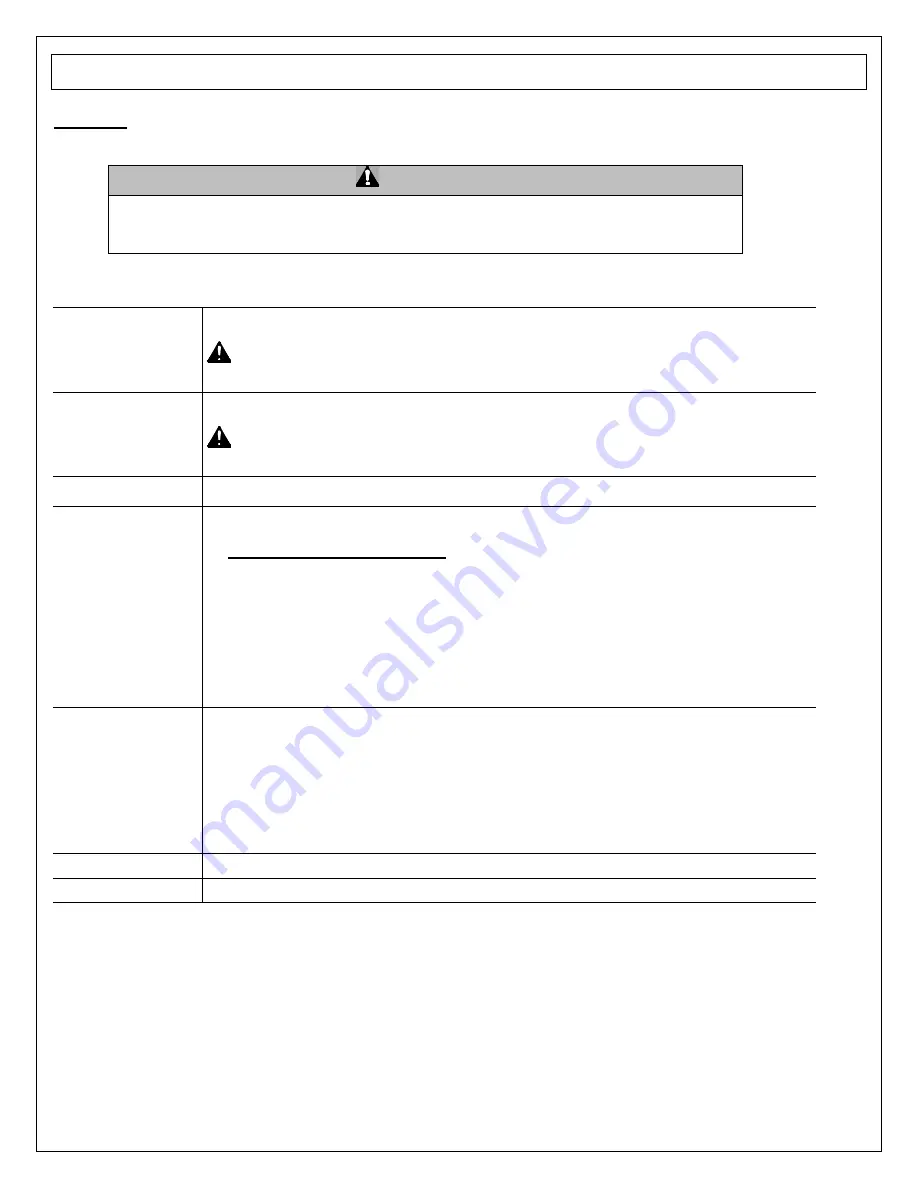
Before Each Use – Fueling
15
Step Two: Fueling
WARNING
Gasoline is highly flammable and explosive. You can be burned or seriously injured when
handling fuel. Use extreme care when handling gasoline.
1. Engine off / cool The engine must be off and allowed to cool at least two minutes before adding fuel.
WARNING:
A running engine is hot enough to ignite fuel. Never add fuel or
remove gas cap if engine is running or still hot.
2. Outdoor location Fill fuel tank outdoors – never indoors.
WARNING:
Gasoline vapors can ignite if they collect inside an enclosure.
Explosion can result.
3. Remove gas cap
Remove engine gas cap.
4. Add gasoline
Add gasoline through fill opening from a UL-approved container.
Important Safety Instructions:
Use approved container
. NEVER pump fuel directly into engine at gas station.
Static charge can build and ignite fuel. Use a UL approved fuel container to
transfer gas to the engine.
Don’t overfill
. DO NOT overfill the gas tank. Allow at least 1/2” of empty space
below the fill neck to allow for fuel expansion
Heat / flames / sparks
. Stay away from sources of heat, flame, or sparks while
adding fuel.
5. Spills / splashes
Clean up fuel spills /splashes immediately.
1. Move the log splitter away from spilled fuel on the ground.
2. Wipe fuel off engine and wait 5 minutes for excess fuel to evaporate before starting
engine.
3. Gas soaked rags are flammable and should be disposed of properly.
4. If gasoline is spilled on your skin or clothes, change clothes and wash skin
immediately.
6. Replace gas cap
Replace gas cap securely before starting engine.
7. Gasoline storage Store extra gasoline in a cool, dry place in an UL approved, tightly sealed container.
Содержание M1107C
Страница 2: ...Hazard Signal Word Definitions 2...
Страница 6: ...Safety Label Locations 6...
Страница 29: ...Parts Breakdown Exploded View 1107 REV C 29 29...

































